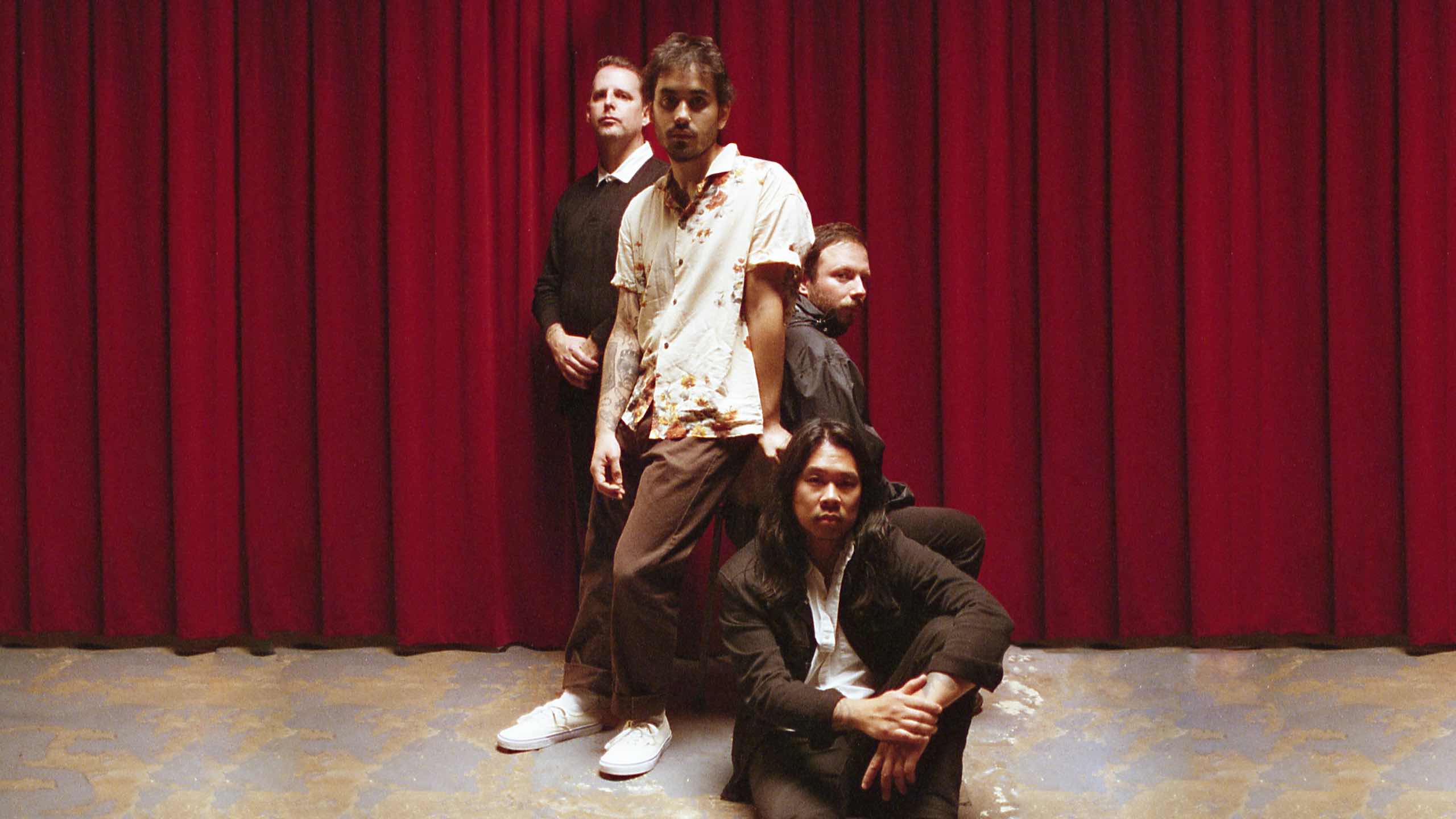On the day that Common Sage’s new album Closer To; is released, the band is putting out a video for their single ”47.” A breakneck track that sits right in the middle of the record, it reckons with frontman Julian Rosen’s self-aware perceptions of himself—and with identity in general, both as it relates to the band and his life. Yet while the lyrics blister with self-doubt and uncertainty, the force with which Common Sage hurtle through the track gives it an air of belligerent defiance that counteracts its inspiration.
“’47.’ reminds me of looking in a mirror for a long time,” explains Rosen, “and noticing every single inch of your face to the point where it stops making sense and starts looking obscure, and maybe even different than you remember. I don’t think that the lyrics are particularly focused or explicit, and I don’t think I dove super deep into what I don’t like about myself, but there are words that are obviously personal to me. I was listening to a lot of Title Fight at the time, and also a specific song by mewithoutYou, which reminded me of a song by State Faults, which reminded me of a song by Gatherers, and I wanted to capture that kind of energy for ourselves.”
Formed in 2018, Common Sage released “Where are you? I’m in Klamath Falls, are you here?” that same year. Spanning 12 tracks, it’s a different record in sound to what followed, which is why Rosen doesn’t actually consider it the band’s first album. Rather, it’s just the one that got the ball rolling on what and who the band would become—something crystallized with 2021’s It Lives and It Breathes.
Ahead of the release of this new album and the video for this single (which was, in something of a full-circle moment, directed and edited by Gatherers’ Rich Weinberger), which is premiering below, we sat down for coffee with Rosen to dive a little bit deeper into the band and their music.
It really feels like there’s a narrative to Closer To;—that it has a beginning, middle, and end. Would you agree with that?
I would agree, and I’m glad to hear that that came across. There’s no story, but there are similar themes throughout. Every song comes back to this central theme, for me, of the album, which is about the feeling of nostalgia and what that is for me, personally. It’s about loss—about a feeling that you’ve lost, as well as points in your life that you won’t get back.
One of the sad facts of life is that the longer you live, the more people you lose, the more people you have to say goodbye to.
Yeah. My family is pretty old—they’re in their 80s at this point, and all they say nowadays is that all of their friends are dead. So if I get to even live to 80 or 90, most of my friends might die way earlier than that.
Is this something that’s always weighed on your mind? Because there were hints of it on your earlier releases, but it’s very much in focus on this one.
It’s definitely something that’s always on my mind. My mom died when I was really young, and it’s not even like I’ll write a song about her, but something about her death will creep its way into a song. And I’ve been thinking about that more and more. When it first happened, I felt like it just happened, but now that I’m older, I think it really messed with me in subtle ways I didn’t think about. So death is something I think about. I think about, obviously, when I’m going to die, just like everyone else, but more so what I think the album is even more about is that I miss being a kid, but in terms of going from childhood into adulthood—into your twenties and your teenage years—and missing people you’d see every day. Not that you took it for granted, but you never thought that that wouldn’t be the case. So it’s all of the feelings that come with getting older that you didn’t have in the past.
So without turning this into a therapy session, did writing this record help you come to terms with those feelings?
I don’t know. I don’t think so. Maybe in a year or two I can say, “I’m glad I got out whatever I had to get out.” I don’t feel like this is a masterclass in lyric writing, where I was as focused as I could possibly be and I wrote exactly what I had to say. I’ll listen to a song and I’ll be like, “I wish I’d said this,” or, “I wish I’d said that.” But it’s something I had to write about, and I’m sure I’ll feel differently about it as time passes—like, it’ll feel good to look at this and see that it’s there, you know?
What are your hopes for this song, and for the record as a whole?
Honestly, I want to be the biggest band in the world. I want as many people to listen to it as possible. I want everyone to like it, hopefully—or even if they dislike it. As long as somebody listens to it, that’s cool. But yeah, I have, unfortunately and truthfully, the grandest ambitions.







